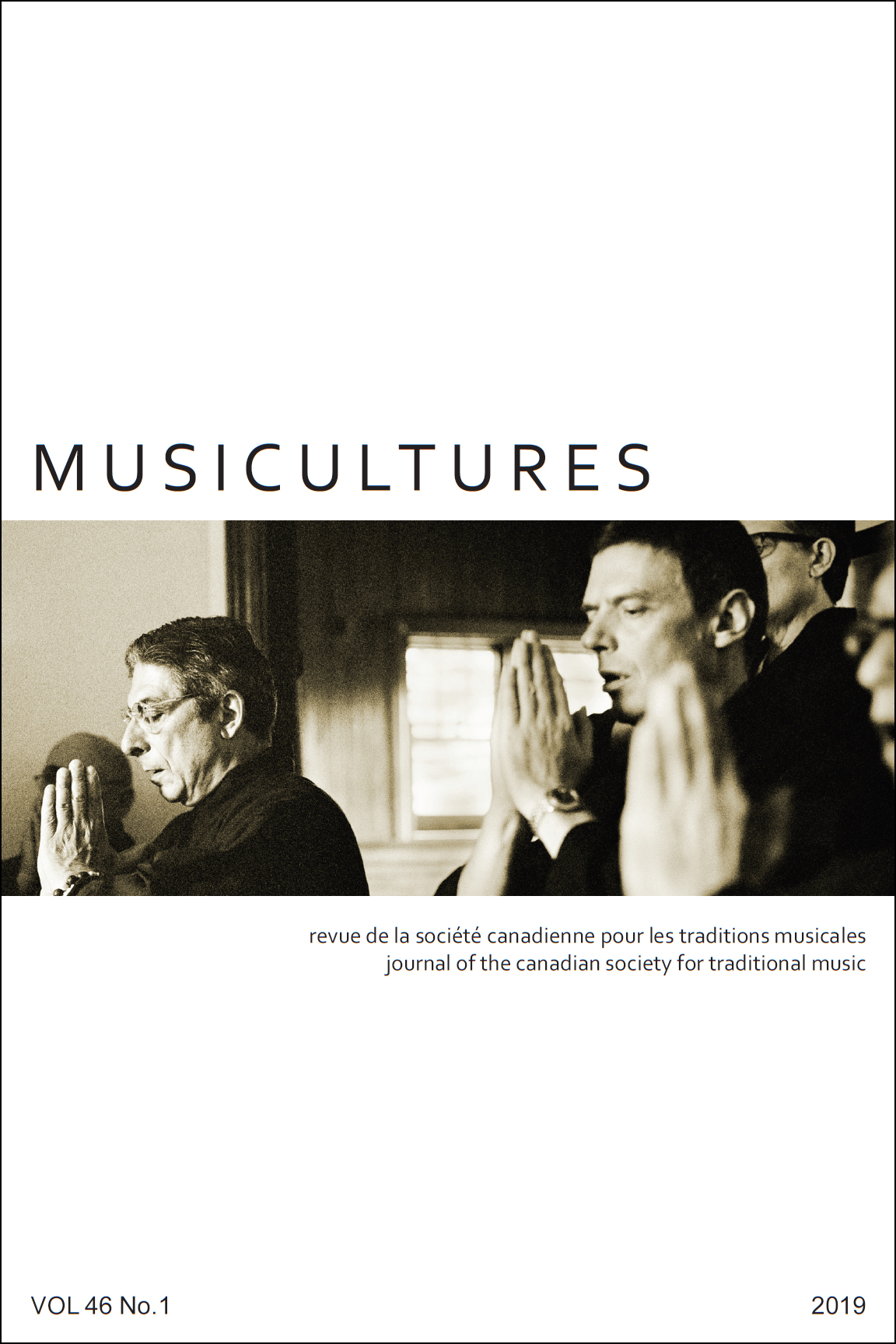Abstract
Over the past five years, Village Zendo, a Manhattan-based Zen Buddhist community, has been incorporating American Sign Language into its daily liturgy. The resulting vocal-
manual chanting, in which liturgy is sung and signed, is a new development in American Zen. Through vocal-manual chanting, this community addresses audism (discrimination based on the ability to hear) while moving toward greater inclusion and equity. Moreover, hearing members report gains in their Zen practice due to the incorporation of sign language. This essay examines the development, meanings, and repercussions of vocal-manual chanting in the contexts of Sōtō Zen Buddhism, Buddhist chant, and Deaf musicking.
- The author retains copyright over the work.
- The author grants the journal owner (The Canadian Society for Traditional Music / La Société canadienne pour les traditions musicales) an exclusive license to publish the work.
- The author may post a pre-print or post-print version of the work (see definitions below) on a personal website for up to twelve months after the work is published in MUSICultures. After twelve months, the pre-print version must be replaced with the published version.
- The author may deposit the published PDF of the work in a non-commercial online repository twelve months after the work is published in MUSICultures, or any time thereafter.
- Any such deposit must include a link to the work on the MUSICultures website, e.g., https://journals.lib.unb.ca/index.php/MC/article/view/19996
A pre-print is a work-in-progress—a contribution not yet accepted, or perhaps even submitted, to MUSICultures.
A post-print is the version of a contribution after peer review and acceptance by MUSICultures, with revisions completed.
The published version is the PDF file of a contribution as it appears in MUSICultures.
Please note that academia.edu and ResearchGate.com are both for-profit repositories; authors may not deposit the published PDF of the work in these repositories until after the journal’s embargo period.
For permission to reprint or translate material from MUSICultures, please contact Heather Sparling, General Editor of MUSICultures (heather_sparling@cbu.ca).

